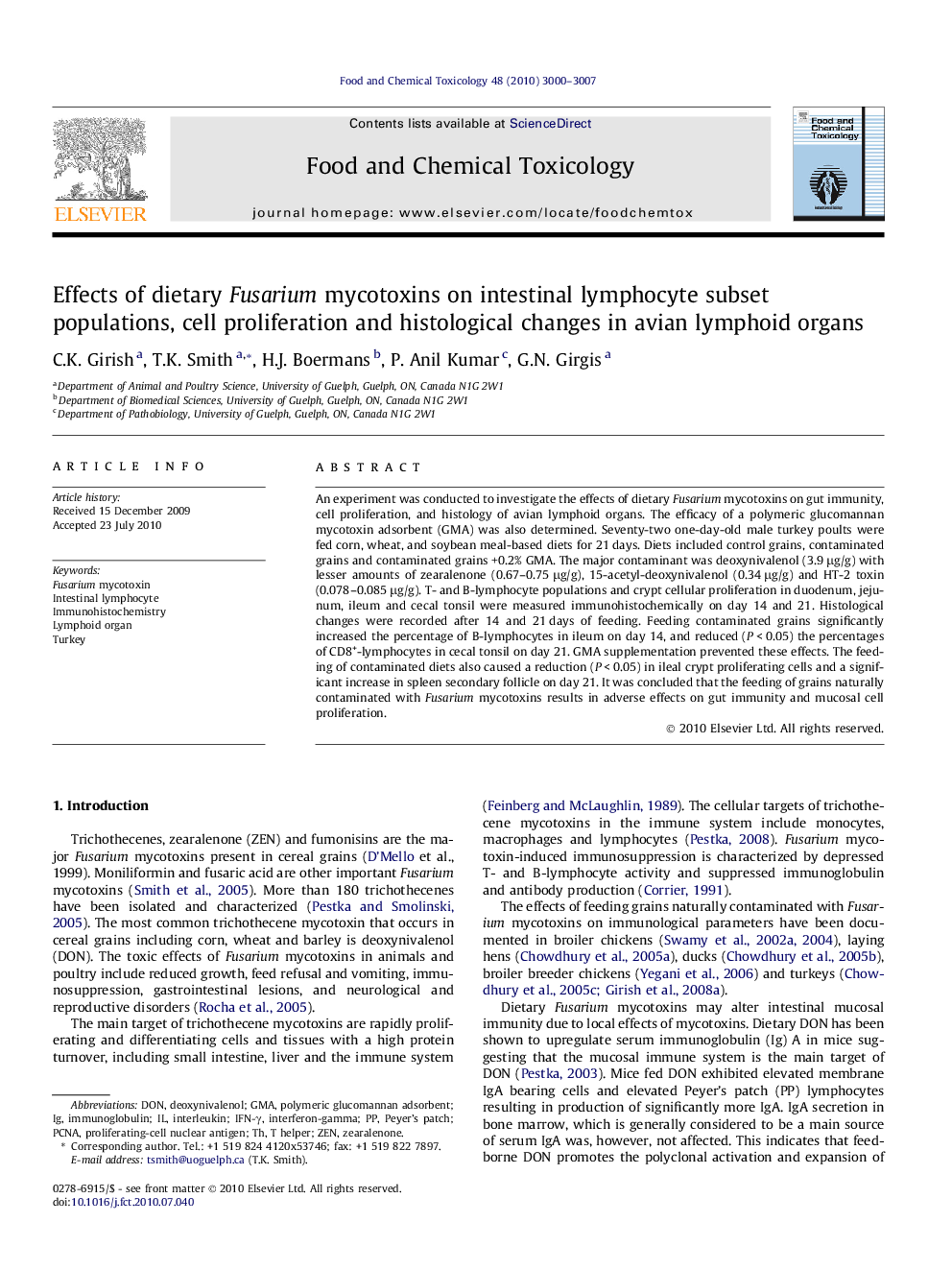| Article ID | Journal | Published Year | Pages | File Type |
|---|---|---|---|---|
| 2585621 | Food and Chemical Toxicology | 2010 | 8 Pages |
An experiment was conducted to investigate the effects of dietary Fusarium mycotoxins on gut immunity, cell proliferation, and histology of avian lymphoid organs. The efficacy of a polymeric glucomannan mycotoxin adsorbent (GMA) was also determined. Seventy-two one-day-old male turkey poults were fed corn, wheat, and soybean meal-based diets for 21 days. Diets included control grains, contaminated grains and contaminated grains +0.2% GMA. The major contaminant was deoxynivalenol (3.9 μg/g) with lesser amounts of zearalenone (0.67–0.75 μg/g), 15-acetyl-deoxynivalenol (0.34 μg/g) and HT-2 toxin (0.078–0.085 μg/g). T- and B-lymphocyte populations and crypt cellular proliferation in duodenum, jejunum, ileum and cecal tonsil were measured immunohistochemically on day 14 and 21. Histological changes were recorded after 14 and 21 days of feeding. Feeding contaminated grains significantly increased the percentage of B-lymphocytes in ileum on day 14, and reduced (P < 0.05) the percentages of CD8+-lymphocytes in cecal tonsil on day 21. GMA supplementation prevented these effects. The feeding of contaminated diets also caused a reduction (P < 0.05) in ileal crypt proliferating cells and a significant increase in spleen secondary follicle on day 21. It was concluded that the feeding of grains naturally contaminated with Fusarium mycotoxins results in adverse effects on gut immunity and mucosal cell proliferation.
